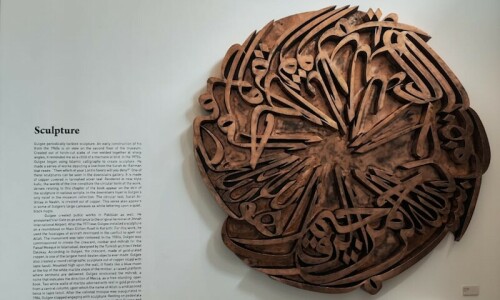ISLAMABAD: Pakistan continues to face the threat of ‘Ug99’, a disease that cause rust on wheat, as the country has not developed enough disease-resistant varieties, cautioned an official of the US Department of Agriculture.
“The threat is enormous because Pakistan does not have many Ug99-resistant varieties,” Ian Winborne, Plant Health Adviser of the US Department of Agriculture, based in Islamabad, told Dawn on Saturday.
The ‘Ug99’ was first detected in Uganda in 1999 and later spread throughout East Africa, Yemen, Sudan and Iran and its further predicted spread towards North Africa, Middle East, and Asia and beyond has raised serious concerns of major epidemics that could destroy the wheat crop in various areas.
Pakistan has introduced NARC-11 in 2011 and PAK-13 last October. The two Ug99 resistant varieties were first developed in CIMMYT in Mexico and later brought to Pakistan for testing by Pakistan Agricultural Research Centre and provincial agricultural research stations.
Trial data from 64 research stations proved the survival of the two varieties, and consequently, the government released them to farmers.
The USDA official said that these varieties are high-yielding and adapted to different environment in Pakistan.
NARC-11 is suitable for irrigated areas while PAK-13 performs better in barani areas.
The US Department of Agriculture, in collaboration with PARC and research institutes in provinces, is continuing a wheat productivity enhancement project to protect and enhance the productivity of wheat in Pakistan, with particular focus on wheat rusts.
The success of the two new varieties has given rise to the hope that there is a solution to ‘Ug99’. With these two, more varieties would come on board in future years.
Starting next wheat season, work will start to replicate the two varieties so that enough quantities of wheat are made available, Winborne said. More than 50 new varieties of wheat were under yield trials across Pakistan.

















































Dear visitor, the comments section is undergoing an overhaul and will return soon.